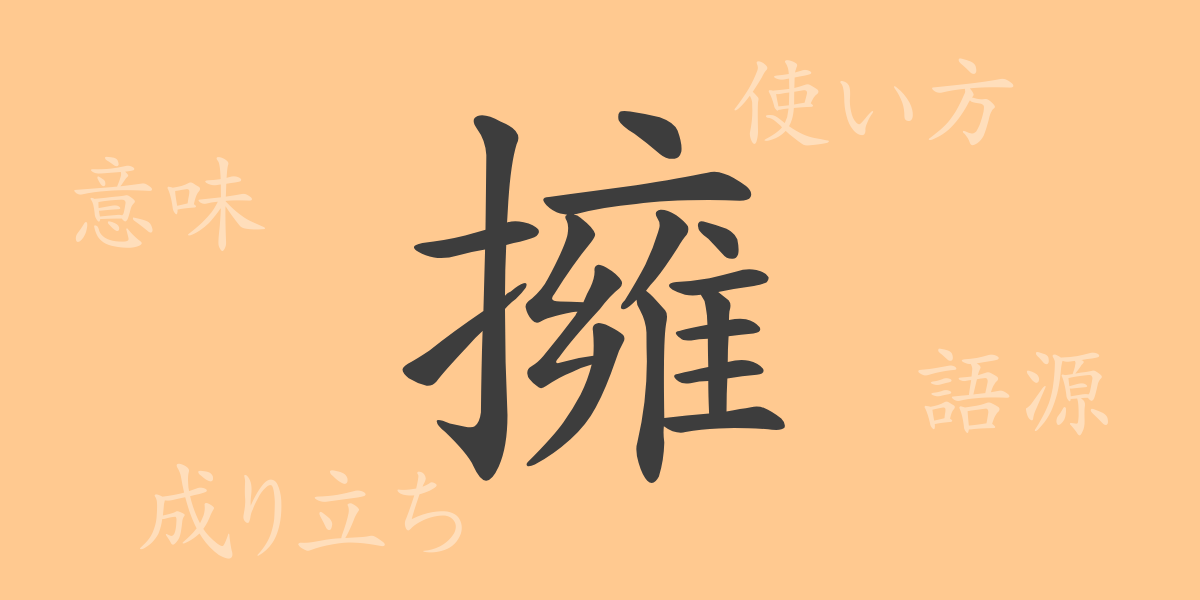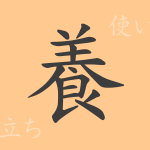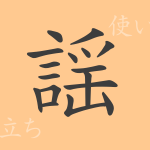Japan’s written culture is profound, and among its characters, kanji (漢字) are known for their complexity and beauty. One of the commonly used kanji is “擁” (yō), a character frequently encountered in our daily lives. In this article, we will delve into the origins, meanings, usages, and the idiomatic expressions and proverbs ingrained in the hearts of the Japanese people.
Origins of “擁” (yō)
The kanji “擁” (yō) originated in ancient China. It is composed of the radical “扌” (tehen), meaning “hand,” and “勇” (yū), depicting the act of embracing. This combination gives rise to the meaning “to hold firmly with hands.” When kanji culture was introduced to Japan, this character was adopted and its meanings expanded within Japanese culture and language.
Meanings and Usages of “擁” (yō)
The primary meanings of “擁” (yō) include actions such as “to embrace,” “to support,” and “to surround.” Metaphorically, it can also mean “to maintain” or “to possess.” In political contexts, it is used to mean “to support,” and in military contexts, it means “to defend.” This versatile kanji is used in various situations.
Reading, Stroke Count, and Radical of “擁” (yō)
The kanji “擁” (yō) has multiple readings and is used differently depending on the context.
- Reading: The on’yomi (音読み) is “ヨウ” (yō), and there is no specific kun’yomi (訓読み).
- Stroke Count: It consists of 16 strokes.
- Radical: The radical is 扌 (tehen).
Idioms, Proverbs, and Expressions Using “擁” (yō)
Idioms and expressions containing “擁” (yō) demonstrate its broad meanings. For instance, “擁護” (yōgo) means “to protect and support,” “擁立” (yōritsu) means “to support and promote,” and “擁する” (yōsuru) means “to embrace.” These expressions reflect the Japanese sentiment of valuing and cherishing people and things.
Summary of “擁” (yō)
The kanji “擁” (yō), in both its form and meaning, symbolizes the importance of support. Socially and personally, we live by “embracing” many things. Understanding the rich meanings of this kanji allows us to appreciate the profound depth of the Japanese language.

























